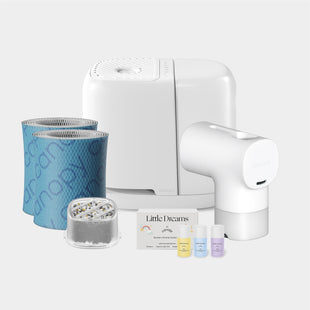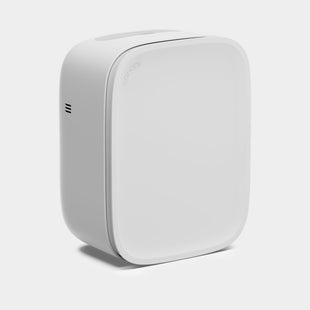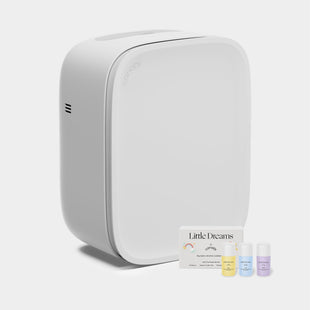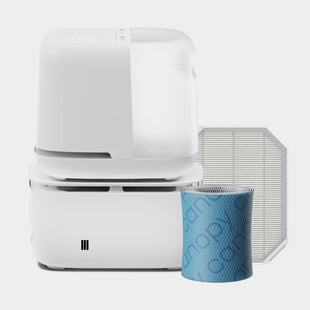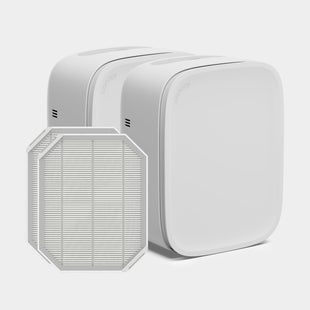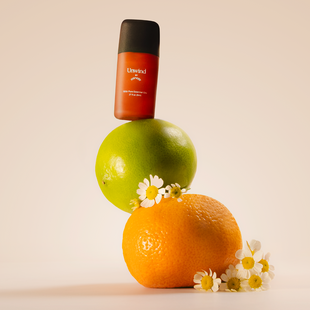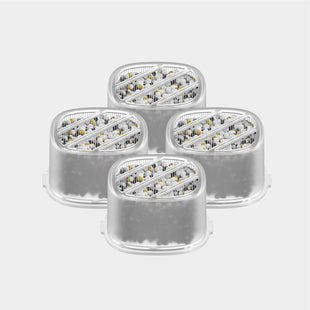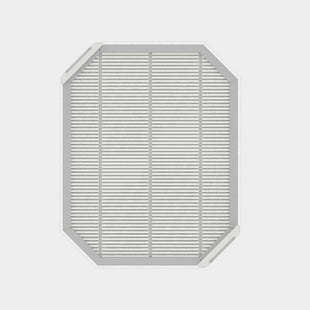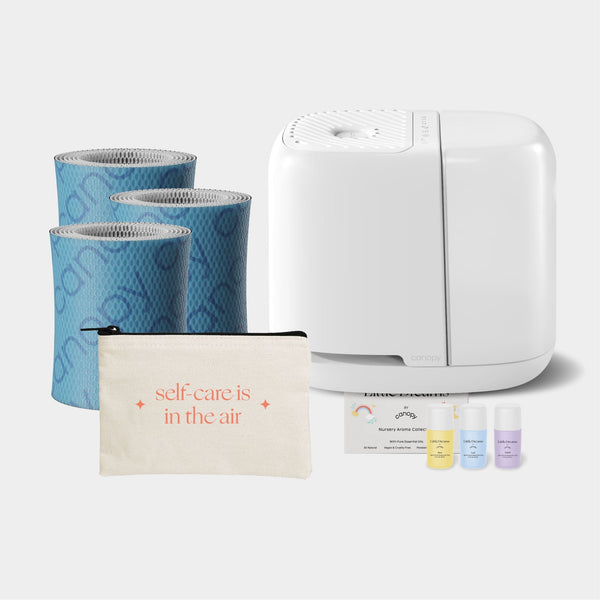As a parent, every decision you make about your child’s care feels important. Chances are you spend a good deal of time researching what’s best for your baby—and you’ve likely found that humidifiers are widely recommended for little ones. Whether your pediatrician has advised using one as a remedy for colds, or you’re planning to place one in the nursery before your bundle of joy even arrives, you may be wondering where to place a humidifier in a baby’s room. Here’s what you should know about the optimal placement for this beneficial device.
Where to Place a Humidifier in the Nursery
It’s a good idea to place a humidifier in a central location within your baby’s nursery. Ideally, there will be plenty of space surrounding the humidifier to allow the moist air to disperse freely. To that end, it should be situated at least a foot away from any walls. Otherwise, moisture could accumulate, potentially leading to mold growth.
Next, make sure your baby’s humidifier is placed on a solid, flat surface. This will prevent the humidifier from falling over and leaking.
Finally, there should be nothing covering the humidifier. This could lead to mold growth and would also prevent the moist air from circulating throughout the room.
How Close Should the Humidifier Be to the Baby?

While there are tremendous benefits of using a humidifier in your baby’s room, the device shouldn’t be placed so close to your little one that moisture could accumulate on their crib or bedding. Excess moisture can lead to mold growth on furniture and fabrics. Placing the humidifier too close to the baby could also saturate their sleep space.
The rule of thumb is to place a humidifier 3 to 4 feet from your baby’s crib or sleep space. Not only will this ensure the crib and bedding don’t get too moist, but it will also eliminate the risk of your baby pulling the humidifier down. Keep in mind that, as with any device in your nursery, the wire from the humidifier should be secure and out of your little one’s reach. Even if your child isn’t crawling or walking just yet, be sure to place the humidifier high enough so that it will remain inaccessible as they begin exploring their surroundings.
The Benefits of Humidifiers for Babies
Combat Congestion
The American Academy of Pediatrics recommends humidifiers for babies to help thin mucus. Congestion is common in babies, but because they’re not able to say what’s bothering them, symptoms like sniffles can sometimes go overlooked. Running a humidifier helps thin out the mucus to alleviate congestion, which can lead to a better night’s sleep for everyone—and if there’s something all parents could use more of, it’s rest.
Humidifiers can be especially helpful if your little one does get a cold. Oftentimes, parents are advised to wait to give their babies over-the-counter medications until they get a bit older. Since options for remedies are so limited for this age group, pediatricians recommend humidifiers as a safe lifestyle modification to reduce symptoms. In addition to reducing your little one’s sniffles, the moist air can also help to ease their coughing.
Eliminate Eczema
Eczema affects up to 25% of children, making it a common pediatric skin condition. Symptoms include dry, red, irritated skin. It can be difficult to watch your little one experience skin irritation, and identifying triggers isn’t always easy. However, there are steps you can take to control symptoms. Running a humidifier in their room can help to keep their sensitive skin moist, which is important since dryness tends to worsen or contribute to eczema.
Reduce Risks of Illness
Your little one will be exposed to germs as they begin to explore the world. While coming down with colds and other viruses is a natural part of building immunity, it still makes sense to give them a little extra defense however you can. Running a humidifier in your baby’s nursery can help reduce the risk of contracting bacterial infections or airborne viruses.
According to experts at the Cleveland Clinic, dry air makes you more vulnerable to illnesses and health issues, from asthma to bronchitis, sinusitis, and nosebleeds. It’s important that your baby has moist nasal passages because they’re better able to catch the germs that could otherwise trigger illness.
Medical professionals agree that running a humidifier is a simple fix for adding moisture to boost your family’s immunity, especially in the dry winter months.
As the best humidifier for babies, Little Dreams by Canopy offers clean hydration for your little one through a reimagined device that inhibits mold* growth inside the humidifier and maintains optimal moisture through a sophisticated sensor system. Best of all, it’s easy to install and clean—a winning combination for busy parents.
*Mold inhibition limited to device interior. Does not treat air or environment. 3rd party lab-tested with Aspergillus niger (ATCC 6275, 16404).









